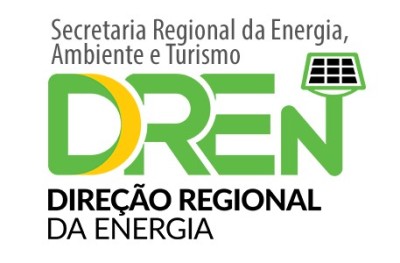Direção Regional de Energia - DREn | Regional Directorate for Energy
The Azorean Directorate for Energy (Direção Regional da Energia in Portuguese), acronym DREn, is the entity of the Azorean Government (Governo dos Açores in Portuguese) responsible for all energy-related matters, with the mission of providing a secure, accessible and sustainable energy system. It follows-up all energy vectors entering and exiting the Azores, as well as their local production and use.
It is responsible for the licensing of all energy-related installations such as those of the local electricity company, filling stations or gas networks. It is responsible for adopting European and national legislation to the regional context as well as authoring its own. It manages the regional programs for energy, namely energy efficiency programs, implementation of renewable energy sources, promotion of energy literacy and cooperation with other regions. DREn is composed of about 35 people, mostly engineers, with an extensive background on energy.
The main challenges for DREn are mostly related to its mission of balancing out an energy system that proves to be secure, accessible and sustainable in an outermost and archipelagic region. The small-scale of the islands does not allow for economies of scale in the energy sector while the distance to mainland, and geographical dispersion of the 9 islands, makes for an even greater challenge. Market liberalisation, as mandated by the EU, then requires the adoption of specific solutions. The lack of economies of scale hinders the installation of energy storage or the private investment on renewable energy sources while the small size of the existing grids presents a strong challenge to increased renewables penetration. Interconnection of the islands is often a proposed solution but, given the depths of over 1000m between the islands, coupled with a scarred basalt ocean floor, still a technical challenge.
Today, DREn is focused on the development of a long-term energy policy that promotes stability and reduces uncertainty. This policy promotes energy efficiency and the use of electricity, in an effort to increase economies of scale by focusing on a single energy vector. Coupled to the use of electricity is the growing share of electricity production from renewables, the transition to electric mobility, and the development of energy storage to reduce the need for stabilisation from thermal power plants. New legislation is also underway, envisaging a higher degree of liberalisation.
- Listing ID: 792
- Region: Azores
- Priority: Circular Economy & Biosustainability
- Web: http://www.azores.gov.pt/Gra/sreat-dre/


